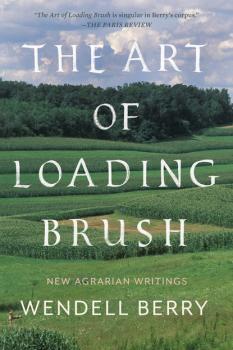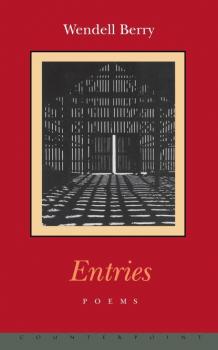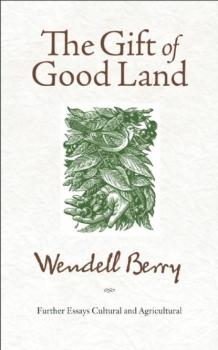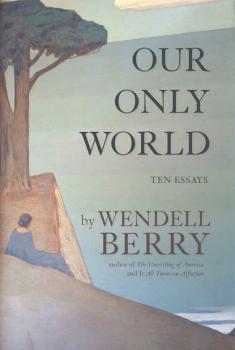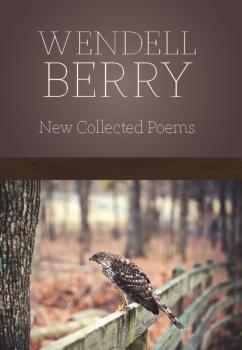ТОП просматриваемых книг сайта:
Wendell Berry
Список книг автора Wendell BerryАннотация
"Berry richly evokes Port William's farmlands and hamlets, and his characters are fiercely individual, yet mutually protective in everything they do. . . . His sentences are exquisitely constructed, suggesting the cyclic rhythms of his agrarian world." — New York Times Book Review Reissued as part of Counterpoint's celebration of beloved American author Wendell Berry, the five stories in Fidelity return readers to Berry's fictional town of Port William, Kentucky, and the familiar characters who form a tight-knit community within. "Each of these elegant stories spans the twentieth century and reveals the profound interconnectedness of the farmers and their families to one another, to their past and to the landscape they inhabit." — The San Francisco Chronicle «Visionary . . . rooted in a deep concern for nature and the land, . . . [these stories are] tough, relentless and clear. In a roundabout way they are confrontational because they ask basic questions about men and women, violence, work and loyalty.» —Hans Ostrom, The Morning News Tribune
Аннотация
This volume of six linked stories and the novella from which the book derives its title is set in Port William from 1908 to the Second World War. Here Wendell Berry introduces two of his more indelible and poignant characters, Ptolemy Proudfoot and his wife Miss Minnie, remarkable for the comic and affectionate range that—with the mastery of this consummate storyteller working at the height of his powers—here approaches the Shakespearean. Tol Proudfoot is huge, outsized, in the tradition of the mythic. The three-hundred-pound farmer, personally imposing and unkempt, is also the most graceful of presences, reserved and gallant toward his tiny wife, the ninety-pound schoolteacher. Their contrasts are humorous, of course, and recall the tall tales of rural Americana. In the novella Watch with Me , we are given a story of such depth, breadth, and importance it earns being listed as one of the most important short stories written in the American language during the twentieth century. "Wendell Berry writes with a good husbandman’s care and economy . . . His stories are filled with gentle humor." ― The New York Times Book Review «Berry is the master of earthy country living seen through the eyes of laconic farmers . . . He makes his stories shine with meaning and warmth.» ― The Christian Science Monitor «A small treasure of a book . . . part of a long line that descends from Chaucer to Katherine Mansfield to William Trevor.» ― Chicago Tribune
Аннотация
A long-awaited new collection of writings by Wendell Berry, this timely collection examines the fracturing of American society through the lense of our nation’s contemporary agricultural struggles Actor Nick Offerman is on board to help promote this new book, including social media outreach, recording the audiobook, and getting it in the hands of influential readers and enthusiasts For fans of Barbara Kingsolver's SMALL WONDER
Аннотация
In these poems, Wendell Berry combines plainspoken elegance with deeply felt emotion—this is work of both remembrance and regeneration. Whether writing as son of a dying father or as father of a daughter about to be wed, Berry plumbs the complexities of conflict, grief, loss, and love. He celebrates life from the domestic to the eternal, finding in the everyday that which is everlasting.
Аннотация
First published in 1972, “Think Little” is cultural critic and agrarian Wendell Berry at his best: prescient about the dire environmental consequences of our mentality of greed and exploitation, yet hopeful that we will recognize war and oppression and pollution not as separate issues, but aspects of the same. “Think Little” is presented here alongside one of Berry’s most popular and personal essays, “A Native Hill.” This gentle essay of recollection is told alongside a poetic lesson in geography, as Berry explains at length and in detail, that what he stands for is what he stands on. Each palm-size book in the Counterpoints series is meant to stay with you, whether safely in your pocket or long after you turn the last page. From short stories to essays to poems, these little books celebrate our most-beloved writers, whose work encapsulates the spirit of Counterpoint Press: cutting-edge, wide-ranging, and independent.
Аннотация
Published in 1967, we return to Port William during the Second World War to revisit Jayber Crow, the barber, Uncle Stanley, the gravedigger, Jarrat and Burley, the sharecroppers, and Brother Preston, the preacher, as well as Mat Feltner, his wife Margaret, and his daughter-in-law Hannah, whose son will be born after news comes that Hannah’s husband Virgil is missing. "The earth is the genius of our life,” Wendell Berry writes here. “The final questions and their answers lie serenely coupled in it."
Аннотация
The essays in The Gift of Good Land are as true today as when they were first published in 1981; the problems addressed here are still true and the solutions no nearer to hand. The insistent theme of this book is the interdependence, the wholeness, the oneness of people, land, weather, animals, and family. To touch one is to tamper with them all. We live in one functioning organism whose separate parts are artificially isolated by our culture. Here, Berry develops the compelling argument that the “gift” of good land has strings attached. We have it only on loan and only for as long as we practice good stewardship.
Аннотация
"Stern but compassionate, author Wendell Berry raises broader issues that environmentalists rarely focus on . . . In one sense Berry is the voice of a rural agrarian tradition that stretches from rural Kentucky back to the origins of human civilization. But his insights are universal because Our Only World is filled with beautiful, compassionate writing and careful, profound thinking." — Associated Press The planet's environmental problems respect no national boundaries. From soil erosion and population displacement to climate change and failed energy policies, American governing classes are paid by corporations to pretend that debate is the only democratic necessity and that solutions are capable of withstanding endless delay. Late Capitalism goes about its business of finishing off the planet. And we citizens are left with a shell of what was once proudly described as The American Dream. In this collection of eleven essays, Berry confronts head-on the necessity of clear thinking and direct action. Never one to ignore the present challenge, he understands that only clearly stated questions support the understanding their answers require. For more than fifty years we've had no better spokesman and no more eloquent advocate for the planet, for our families, and for the future of our children and ourselves.
Аннотация
Here, Wendell Berry revisits for the first time his immensely popular Collected Poems , which The New York Times Book Review described as “a straightforward search for a life connected to the soil, for marriage as a sacrament, and family life” and “[returns] American poetry to a Wordsworthian clarity of purpose.” In New Collected Poems , Berry reprints the nearly two hundred pieces in Collected Poems , along with the poems from his most recent collections— Entries , Given , and Leavings —to create an expanded collection, showcasing the work of a man heralded by The Baltimore Sun as “a sophisticated, philosophical poet in the line descending from Emerson and Thoreau . . . a major poet of our time.” Wendell Berry is the author of over forty works of poetry, fiction, and non-fiction, and has been awarded numerous literary prizes, including the T.S. Eliot Prize, a National Institute of Arts and Letters award for writing, the American Academy of Arts and Letters Jean Stein Award, and a Guggenheim Foundation Fellowship. While he began publishing work in the 1960s, Booklist has written that «Berry has become ever more prophetic,» clearly standing up to the test of time.
Аннотация
"The courage of a book, it has been said, is that it looks away from nothing. Here is a brave book." ― The Charlotte Observer «Berry says that these recent essays mostly say again what he has said before. His faithful readers may think he hasn't, however, said any of it better before.» ― Booklist (starred review) «His refusal to abandon the local for the global, to sacrifice neighborliness, community integrity, and economic diversity for access to Wal-Mart, has never seemed more appealing, nor his questions of personal accountability more powerful.» ― Kirkus Reviews There are those in America today who seem to feel we must audition for our citizenship, with «patriot» offered as the badge for those found narrowly worthy. Let this book stand as Wendell Berry's application, for he is one of those faithful, devoted critics envisioned by the Founding Fathers to be the life's blood and very future of the nation they imagined. Citizenship Papers collects nineteen new essays, from celebrations of exemplary lives to critiques of American life, including «A Citizen's Response [to the new National Security Strategy]»—a ringing call of caution to a nation standing on the brink of global catastrophe.



